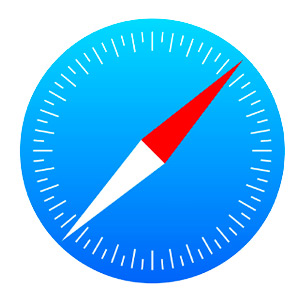Ever uploaded a photo to Google Drive? Backed up your phone on iCloud? Dragged a file into Dropbox to share with a client or coworker? Well then, you’re well-acquainted with cloud storage. But what is cloud storage exactly? And how do you know which service is the right one for your needs?
In short, cloud storage allows you to save your files online rather than just on your phone or computer. That leads to several big benefits. Namely, not only are your files safely stored on the cloud (i.e., remote servers), but you can access them any time, from anywhere, with any device—as long as you have an internet connection and the right password.
Cloud storage can also keep your devices running more efficiently. For instance, if your files are stored on the cloud, they don’t have to take up precious space on your phone. It also means your files are safely backed up automatically. So if the terrifying blue screen shows up on your computer, you haven’t lost ten years (or ten months) of your hard work. Finally, it offers a simple way to share family photos, work documents, and more, ultimately making digital life easier. And couldn’t we all use tools to make things easier?!
What Is Cloud Storage? The Basics
Think of cloud storage almost like a digital locker. But instead of stuffing your books and file folders into a school locker (or into your device’s hard drive), you upload them to the internet using a secure data center. Ultimately, because your files are safely stored in the cloud, they won’t get crushed, damaged, or lost because there’s not quite enough space for everything you need to store.
You can then access your files from virtually any device: your laptop, desktop, phone, or tablet. You can even use someone else’s computer. You would just need to log in first using your unique password. This can provide so much peace of mind if your laptop crashes or your phone takes a dive into a swimming pool or lake. Hey, it happens. But your data, because it’s not just stored on the device, remains safe and sound. Phew!
What about cloud backup? How does it differ from cloud storage? Unsurprisingly, the two are closely related. However, they aren’t the same. Cloud storage is all about access and sync. So it keeps your files available wherever you go. You can then upload, organize, or share them as needed. Cloud backup, on the other hand, is more like insurance. It sits in the background, silently backing up your whole device (or specific files). So, if something goes wrong, you can restore everything.
Some services, like iCloud and OneDrive, do both. That makes them even more useful. Best of all, you don’t need to be a tech guru. If you have the skills to upload a photo (and we know you do), you can use cloud storage.
Popular Cloud Storage Services: How Do They Compare?
Many people have their own preferences when it comes to cloud storage; each has its own set of pros. The good news is you can pick just one depending on what’s important to you. There’s no need to have a variety. Here’s a breakdown on each:
Google Drive: If you use Gmail, Google Photos, Google Docs, or a Google Pixel, Google Drive is already built in. It comes with a free plan with 15 GB to share across your email, drive, and photos. That may not be enough for you. Fortunately, the paid plan starts at just $1.99/month for 100 GB. That’s a reasonable cost for something that can restore your data if a device goes down.
It’s best for Android users, students, families, and folks using Google Workspace. It’s very popular as it offers easy sharing and real-time collaboration.
Apple iCloud is the best option for folks in the Apple ecosystem (i.e., iPhones, iPads, Macs). iCloud also automatically backs up your photos, messages, and app data. And you get 5 GB on the free plan. Need more? Plans start at about $0.99 for 50 GB (and you get more with Apple One bundles).
It’s best for Apple users, of course. And it seamlessly backs up and syncs. Plus, you can easily share files and even create photo libraries to share with family and friends.
Microsoft OneDrive is another highly popular option for PC users as it’s built into Windows and integrated with Microsoft 365 (i.e., Word, Excel, Outlook). Again, it starts with a free plan (5 GB), and if you need more data, it costs $1.99/month for 100 GB. Alternatively, you can bundle the extra data with your Microsoft 365 annual plan ($69.99/year for 1 TB).
It’s best for Windows users and those who prefer Office, and it’s often used in professional settings. According to users, one of the best features is the real-time document editing and backup across devices.
Dropbox is an OG cloud storage platform that remains popular today. The free plan offers twice the storage as some of the others on the list (2 GB). Paid plans are also available. For example, you can get 2 TB for $9.99/month, which is why it remains popular today with creatives, such as freelancers, collaborators, and those who need version control.
It’s best for those seeking fast syncing and strong file recovery options.
If you are an AT&T mobile customer, you might already have access to AT&T Personal Cloud. This service is focused on backing up your phone, including your contacts, messages, videos, and photos. Paid plans start around $4.99/month for 500 GB, but you can try it before you buy with the free trial.
It’s best for AT&T wireless customers who are looking for simple mobile backups.
How to Choose the Best Cloud Storage for You
Now that you know the answer to “what is cloud storage?”, you may be wondering which one is right for you. Fortunately, finding the right fit is easy. It starts with asking the right questions:
What are you storing?
If you’re storage needs are heavy (think lots of photos and videos), the iCloud and Google Drive are great options. If most of your data is on your phone, AT&T Personal Cloud may be all you need.
If, on the other hand, you’re storing large work files or you need tons of space, Dropbox or OneDrive may be better options.
What devices do you use?
Choose the service that plays best with your operating system. For example, if you’re in the Apple universe, go with iCloud. Windows? OneDrive. Android/Google: Google Drive. And if you’re using multiple platforms (e.g., iPhone but Windows laptop), then Dropbox is typically compatible across platforms.
How much space do you need?
If you are just looking for a basic backup or to share files occasionally, free plans may be all you need. If, however, you’re syncing across devices, storing high-res images, or backing up videos, then paid plans are the way to go. Fortunately, most are surprisingly affordable, starting at $2/month.
Do you need to share or collaborate?
If you work with others, whether you share an office or work miles apart, Google Drive, Dropbox, and OneDrive all excel when it comes to collaboration.
Is privacy or security a top concern?
Of course, privacy and security are always a top concern. Fortunately, all major platforms know this and thus offer encryption and two-factor authentication. However, if you work with sensitive materials or are looking for options that are more privacy-focused, Sync.com or pCloud are two options with enhanced privacy policies.
Pro Tip: If you’re still not sure which option is best for you, why not give some a try? Many services offer free trials, so you can test them out before committing.
Your Digital Life, Simplified
What is cloud storage? It’s a smarter, safer way to keep your digital life organized and accessible. From device to device or for collaboration, whether you’re backing up priceless (and precious) photos, sharing work files, or just freeing up space on your device.
Start by thinking about what you really need. Do you just need a simple way to back up your phone in case you drop it or lose it for good? Or do you need an easy way to collaborate on files? Or are you just looking for some peace of mind that keeps your memories (e.g., baby or pet photos) safe? Once you know the answer, you can pick the service that best fits your devices, your storage habits, and your budget.
At the end of the day, cloud storage allows you to keep your most important stuff safe and protected—no matter where you are.





